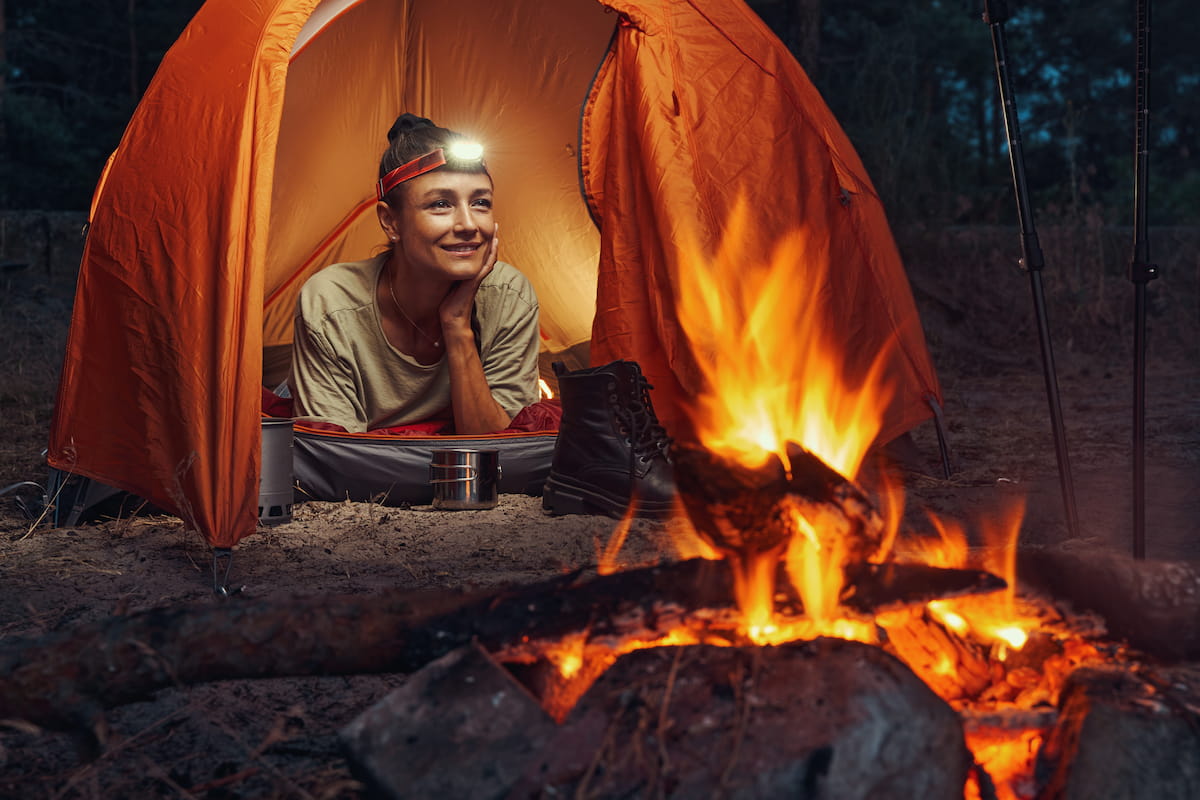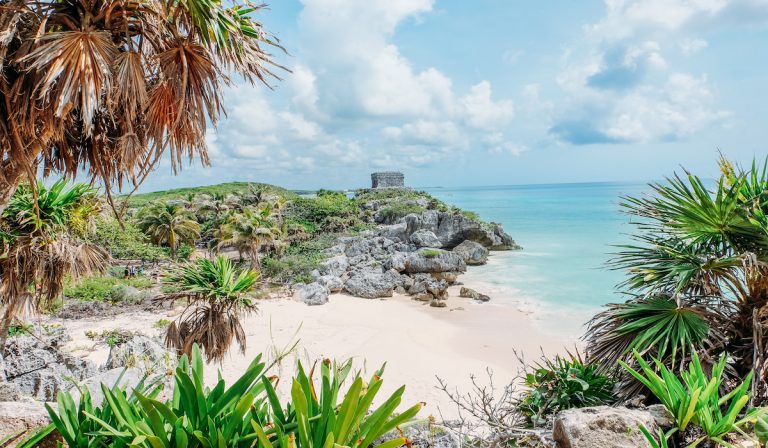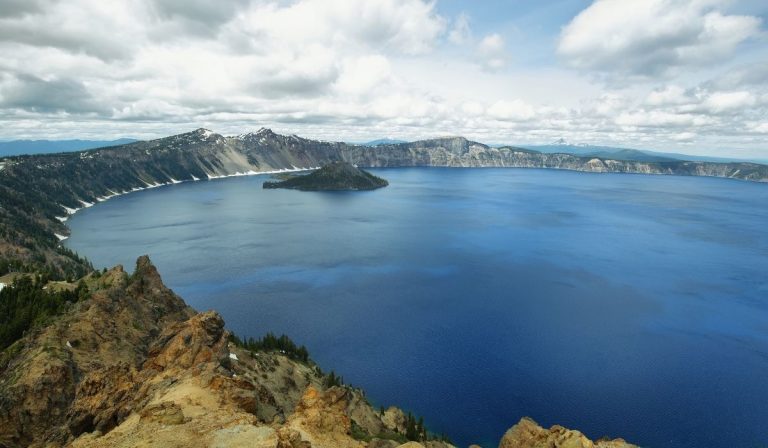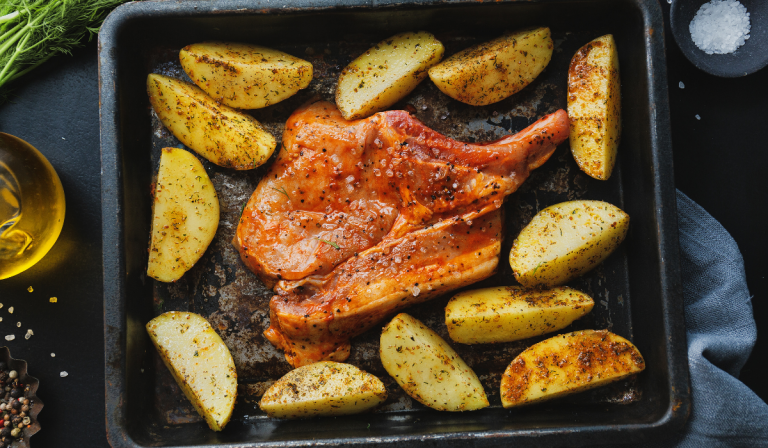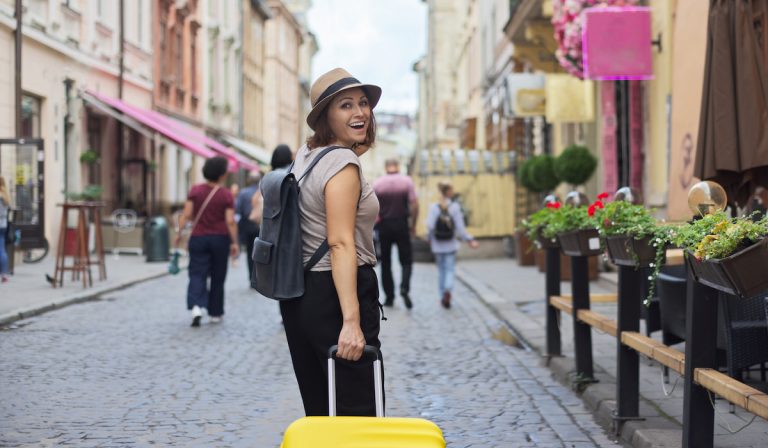Solo Camping for Beginners Guide (Everything You Should Know)
Camping is fun and exciting, but it can also be dangerous if you are not fully prepared. You can even try going on your own to experience the full joy of camping. Are you a beginner who wishes to camp solo? Read this guide for many essential tips as well as the basics of everything that you should know.
Useful Tips for Solo Camping Beginners
Camping can be dangerous when you do not prepare well. It is, however, an enjoyable activity when you have everything that you need. Here are some valuable tips to help you enjoy your camping trip without difficulty:
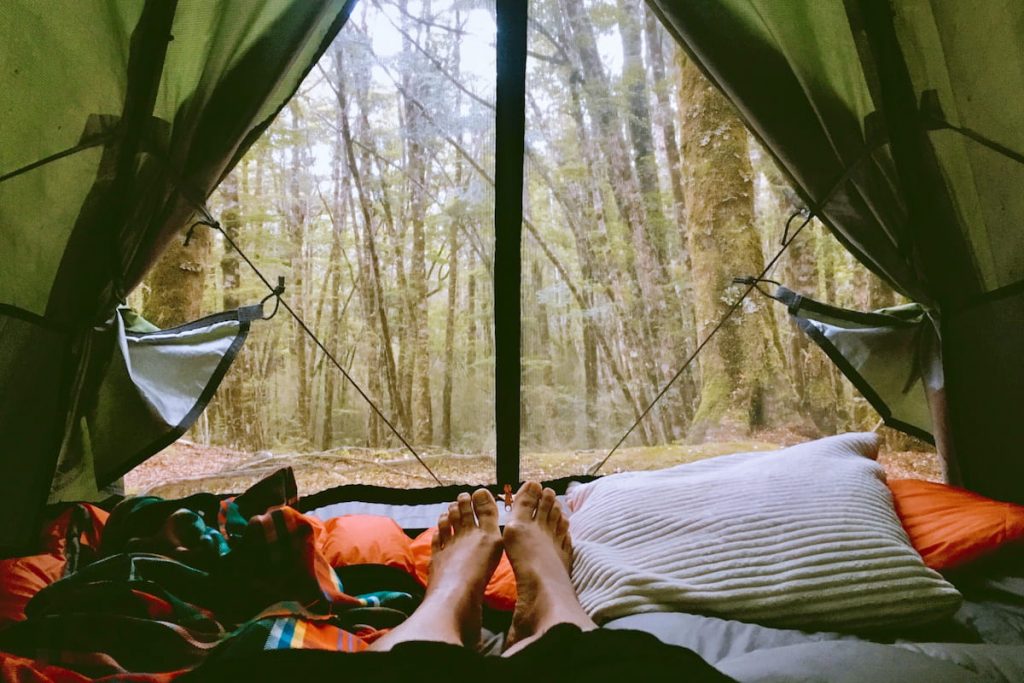
1. Aim to Camp for Five or More Days
The first thing you need to know when camping as a beginner is that you may feel nervous for the first couple days of camping. Sleeping alone in a remote location can be scary for your first 1-3 nights. You may hear weird sounds or miss home.
If you want to enjoy your trip and go back with the best memories, you should consider camping for a minimum of five days so that you can get comfortable with the location in the first few days before you start enjoying your trip. When you are comfortable with being alone in a remote place, even at night, you can start creating fabulous memories.
2. Research the Location
Where are you traveling to? What is the economic and security situation of the nation, state, or community? You need to adequately research the area to decide if it is safe for you or not. Remember that you will be camping alone.
You should also consider natural factors such as predators and diseases. What types of wild animals should you expect in your camping location? How will you handle these animals if they come your way? Also, is there an outbreak of disease (human or animal) in the area? You should be careful so that you do not put yourself in a harmful situation or help spread a deadly disease.
3. Get Useful Phone Numbers
What is the emergency number in the location where you will be camping? Is there a hotel nearby or anyone who you need to contact? You should get these useful contacts so that you will not feel stranded in times of need.
You should remember that you will be traveling alone, so you need to plan. If there is anyone that you need to see on your trip, make sure that you have the person’s phone number, and you should even contact the person before traveling.
4. Learn to Stay Calm
This will prove to be a vital skill but just hope that you do not need it. If there is an emergency or you are in a situation in which you may be scared, acting based on your fears or worries can worsen the situation. To help you make the best choices in times of pressure, you need to stay calm.
Assess the situation. If you need to call somebody for help, make the call immediately. Having a panic attack when you are alone can be disastrous, so you need to learn to stay calm in times of pressure. If you cannot stay calm, it is best that you pitch your tent close to other campers so that they can help you in times of need.
5. Reduce Your Load
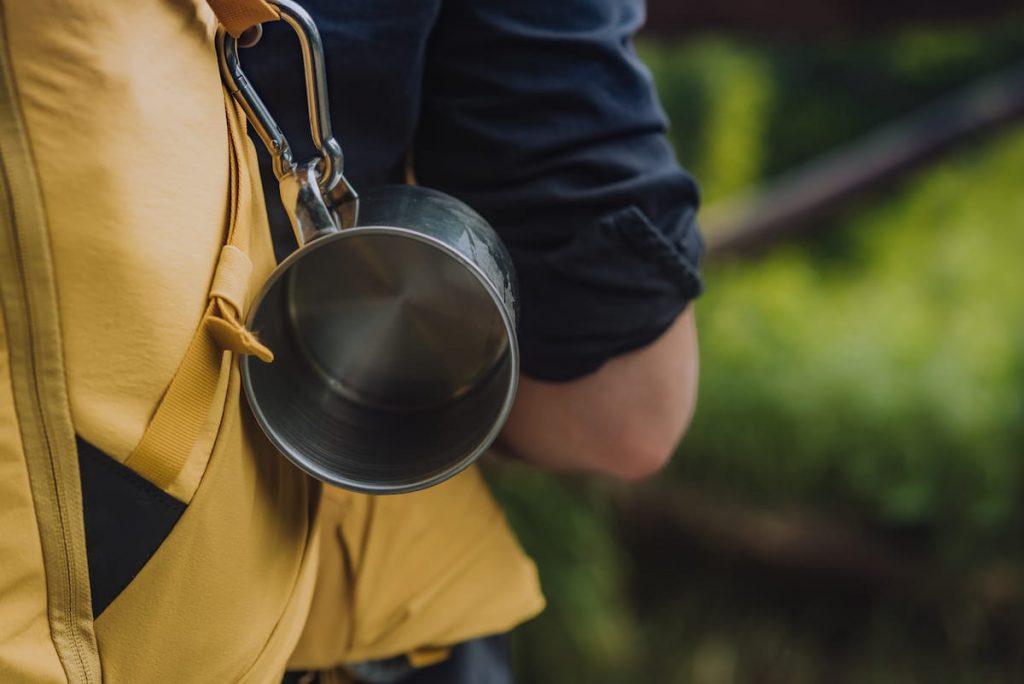
Do not travel with too many items. When camping alone for the first time, travel only with items that you need. You should check the official website of a tourist organization in the area as they will list the necessary items to come with.
Do not travel with a lot of clothes as you might end up not wearing everything. To ease your burden on the trip, travel with a light load.
6. Start With a Nearby Place
For the first time camping alone, you should not go to a very far country as you are not very experienced in traveling alone. You should go to the nearest place available so that you can easily return home if you need to.
Don’t worry, you can travel to farther places on your next trip. Your experience on this first trip will help to decide the next place to go as well as help you select items that you should travel with. Make sure that you do not go camping in a very far place to begin with.
7. Share Your Experiences with Someone (or People)
Always record your journey and make sure that you share it with people. When you post updates of your camping experiences on social media, it does not matter whether you are doing it for trends, it keeps you a bit safer as people can easily track your location if you get lost.
If you are not very comfortable with sharing your location and activities online for everyone to see, you should share them with somebody that you trust. Just make sure that at least one person knows where you are all the time. This is for your safety.
8. Go With an Emergency Device
Emergency devices are simply devices that can help prevent or save you in emergencies. For example, a satellite phone is very important as it can get network reception when regular phones do not have enough network to make a call.
A personal locator beacon is also important so that even if you are lost, people can easily find you. These devices are not so expensive when you consider the cost of your safety. Make sure that you consider safety first when planning to camp alone.
9. Travel With Something That You Love
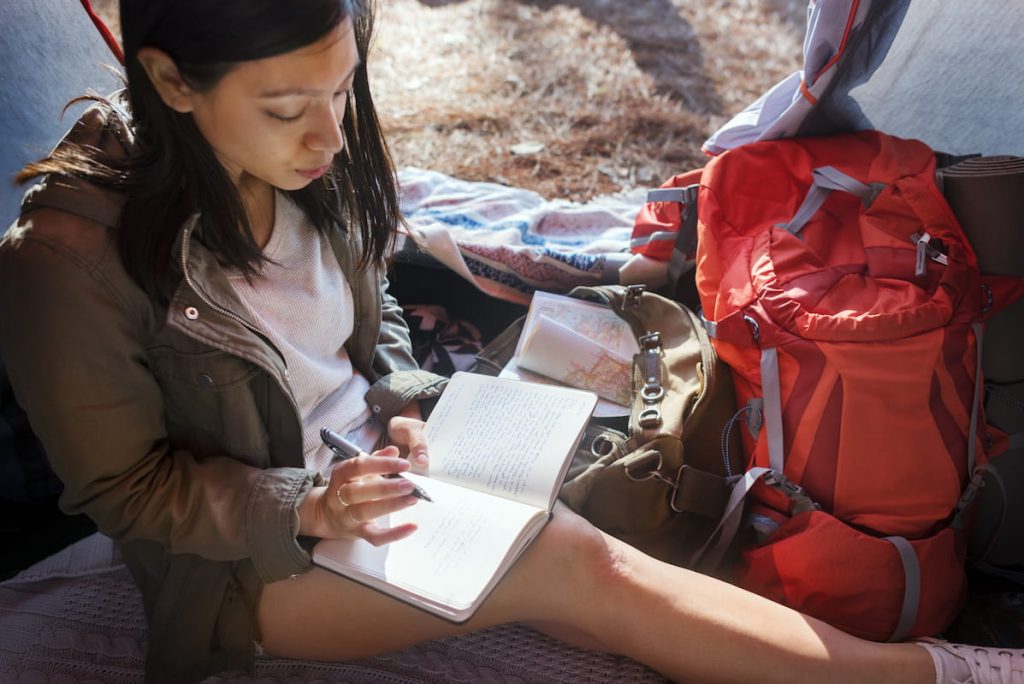
Camping may be fun, but it can become boring, especially when there are no new activities to try, or maybe you have stayed a long time, and there is no new place to visit. Traveling with your favorite items such as books and musical instruments can save you from getting bored as you can keep yourself busy throughout your days of camping.
If you forget to travel with something that you love, you should write down your experiences in a journal, walk for some fresh air, and explore nature so that you will not get bored quickly.
10. Know the Right Gear for Activities on Your Trip
Knowing where you are traveling to is not enough, you need to know what you will be doing when you are camping. Will you go kayaking? Will you go hiking? The activities that you will engage in when you go camping will help you to decide what you should travel with as well as what you should learn beforehand.
Make sure that you know all your activities beforehand so that you can plan your trip well. Also, note that some camping activities require you to have a partner, so you should take that into consideration as well.
11. Camp Solo When You Have Enough Experience in Traveling
Camping can be dangerous when you go solo for the first time. To help you stay safe, you should only consider solo camping when you already have experience in camping with people. Camping with people is fun and beneficial as you all can keep each other safe. When you have gone camping often with people, you can then consider camping solo.
For your first solo camping, you should also consider going to a place that you have camped in with people before. This is because you already know the place and you just want to test yourself if you are ready to camp by yourself. If you think you are ready after this, you can then go to new places.
12. Hope for the Best and Plan for the Worst
This is a realistic statement. It might look either optimistic or pessimistic to you, but it is guaranteed to keep you safe if you follow this statement. You should hope for the best as in expecting great experiences and enjoying your camping trip.
By planning for the worst, it means that you should consider your safety, go with necessary items that can keep you safe, and have the contact details of relevant people to call in case of emergencies. Make sure that you have contingency plans.
13. Complete Your Checklist of Needed Items and Skills
Whenever you want to go on a solo camping trip, you should make a checklist of needed items and skills that you will need to enjoy your camping experience. You can collect this list from tourist organizations in the area as well as ask experienced campers.
Learning what you need to enjoy your camping trip is important so that you do not get left behind when other nearby campers are enjoying a certain activity (such as kayaking). The checklist of what you need differs from one location to the next, so you should research properly.
If you can use the tips above, you will surely have an awesome camping experience. Even if the items and skills that you need to enjoy your camping experience differ from place to place, there are certain basic items and skills that every camper should have.
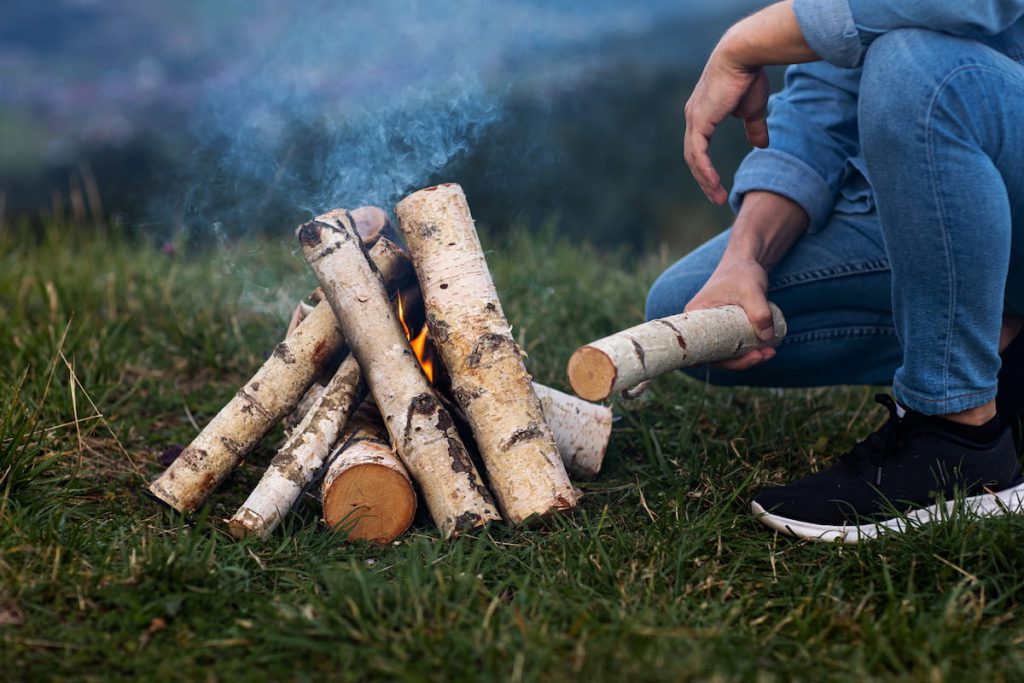
Useful Skills for Solo Camping
Consider learning these skills to help you enjoy your camping experience:
- Navigation: Do you know how to read a map or compass? You need to learn how to navigate from one place to another before going camping (this is most important in solo camping).
- How to Pitch Tents: Many people have gone camping without learning how to pitch tents because they leave them for someone else. You will be pitching a tent yourself, so you need to learn how.
- Making a Campfire: We all know the benefits of a campfire. Do you know how to make one? Don’t forget to travel with a lighter.
- How to Filter Water: Sometimes, you may not find pure water in your camping location. How do you filter the available water so that it can be safe for drinking?
- Handling Wildlife: What happens when a dangerous wild animal comes close to your camp? Learn how to handle the predators in that area.
- Forecasting Weather: Do you know when it will rain? How can you tell that tomorrow will be a sunny day? Learn weather forecasting.
- How to Use a First Aid Kit: In times of emergencies, you will need a first aid kid. Learn how to use it so that you can save your life (or someone else’s) when needed.
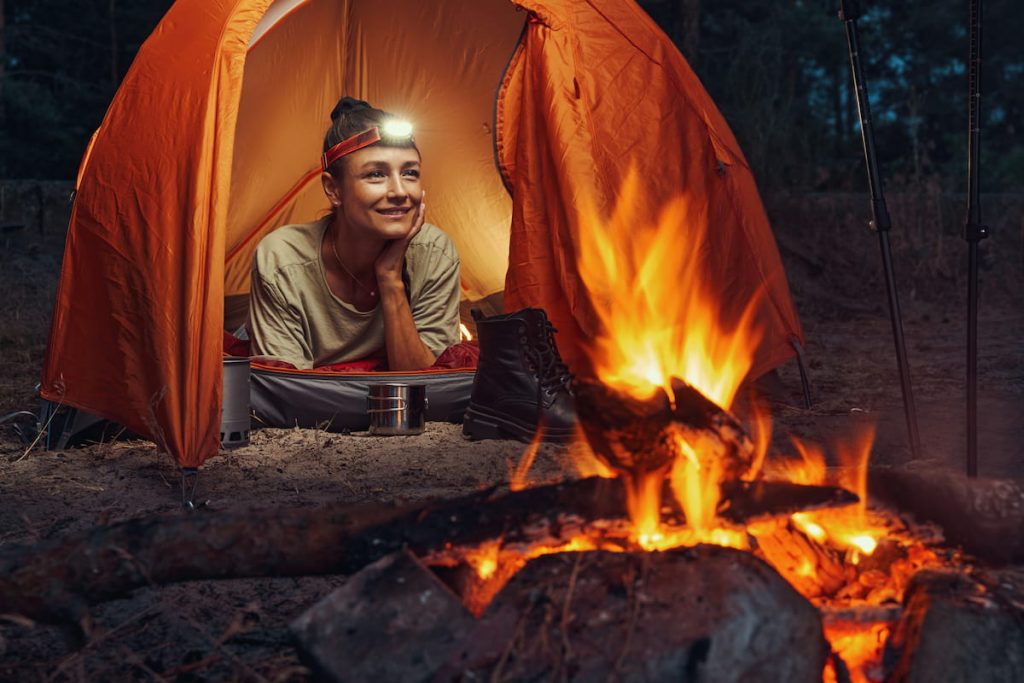
Useful Items for Solo Camping
Here are some items that you need for camping:
- Tent or Hammock: For sleeping or accommodation.
- Roll Mat or Sleeping Bag: To help you sleep comfortably.
- Clothing: The clothes that you bring should be determined by the region and season.
- Footwear: To protect your feet.
- Backpack: To carry some of your load.
- First-Aid Kit: Health emergency.
- Multi-Tool Knife: This type of knife can help you to do more with less.
- Phone: Of course, everyone needs a phone.
- Map and Compass: For navigating.
- Power Bank or Source of Power: To help charge your phone and other items.
- Solar-Powered Lights: To help you see at night. Also, you can charge them with ease.
- Insect Net: If you are camping in a place with mosquitoes, you should consider bringing an insect net.
- Hand or Portable Fan: For tropical regions, you will need a hand fan or any portable fan with which you can keep yourself cool.
Final Thoughts
Solo camping is so much fun when you are prepared for it. You can be prepared for solo camping when you already have experience in camping with others. You should consider camping solo in a place that you already know for the first time to see how comfortable you will be camping alone for the first time. Enjoy your camping trip and continue to broaden your horizons to experience more excitement!
